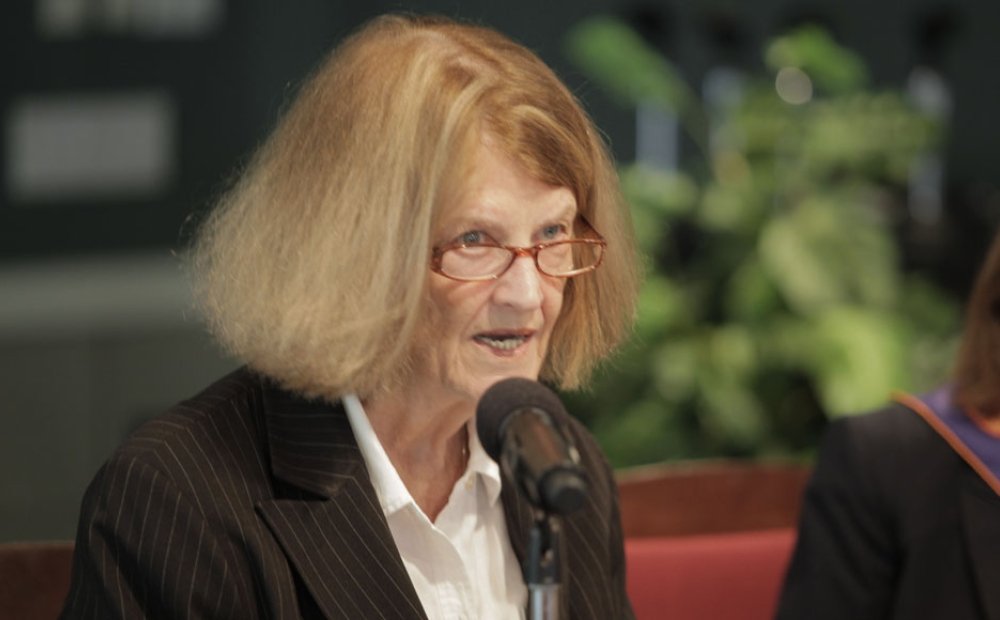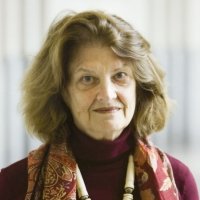Beyond Dichotomy: Building a New Egypt

Margot Badran, Wilson Center Senior Scholar and Senior Fellow at the Prince Alwaleed bin Talal Center for Muslim-Christian Understanding at Georgetown University, discussed religious and secular politics in Egypt, based on the past year she has spent there.
Opening her presentation with a discussion of the “secular-religious fault line” that runs through Egypt, Badran first made note that the meanings of “secular” and “religious” have changed over time. There is a “crisis of terminology,” she said, “…when contexts sufficiently or dramatically change, words may lose their meanings and become misleading.” She continued to say that using “anachronistic” terms such as “secular” and “religious” as antagonistic terms, as was done in the past, “can perpetuate the old and subvert the new.” Furthermore, the labeling of this sociopolitical divide risks further polarization of Egyptian politics. Whereas in the era of Nasser the word “secular” tended to mean “nationalist,” bringing Egyptians of all faiths together on political issues, it has since taken on negative connotations such as “anti-Islamic” with the rise of political Islam.
During the uprisings in early 2011, Badran asserted, such religious markers had “evaporated” and “Egyptians of all kinds came together” to oppose Mubarak and his regime. According to Badran, this showed the resurrection of the “old definition of secular.” In the months that followed Mubarak’s overthrow, divisions re-emerged, in part due to Egyptians’ resistance to demonizing the Muslim Brotherhood, which had in years past “taken care of the poor, the ordinary people” when the state did not. This respect among the poor for the Muslim Brotherhood, along with the experience and organization displayed by their Freedom and Justice Party, helps explain their success in early parliamentary elections.
In more recent months, following the parliamentary elections and in the run-up to the presidential elections, Badran observed that the secular-religious divide has not only returned but “reached fever pitch” in a polarized and argumentative atmosphere. In the presidential runoff campaigns between Ahmed Shafiq and Mohamed Morsi, candidates played on this divide. In particular, Badran pointed to Shafiq’s campaign, which emphasized his experience and promises of security while warning Egyptians that the Muslim Brotherhood would “take the country back.” Badran cautioned against reading Morsi’s victory through a pronounced religious lens, noting that not all who voted for him are religious or oppose secularism. She also pointed out that there is “a newfound ability of citizens to vote people out of office,” which is helping Egyptians – confident that they can remove politicians who “don’t do as we wish,” – alleviate their fears of a shift to conservatism. Although many find the number of Islamists in government “worrisome,” the return of a highly acrimonious secular-religious dichotomy would be detrimental to the building of a new Egypt.
Badran concluded her presentation by turning to a discussion of the secular-religious divide among Egyptian feminists. Older “secular feminists” tend to be more fearful of what a majority-Islamist government could mean for their personal and professional lives. Others recognize that past secular regimes “did very little for women,” seeing instead that “old patriarchal practices survived” even without the Islamists in power. In this context, Islamic feminism can be seen as another venue that may open the stage for policy changes and constructive debates on a whole range of issues. Badran concluded that regardless of their secular or religious affiliations, youth in Egypt “want change and space for individuals to follow their own path.”
By Laura Rostad, Middle East Program
Speaker

Honorary Fellow, Prince Alwaleed bin Talal Center for Muslim Christian Understanding, Georgetown University
Hosted By

Middle East Program
The Wilson Center’s Middle East Program serves as a crucial resource for the policymaking community and beyond, providing analyses and research that helps inform US foreign policymaking, stimulates public debate, and expands knowledge about issues in the wider Middle East and North Africa (MENA) region. Read more
